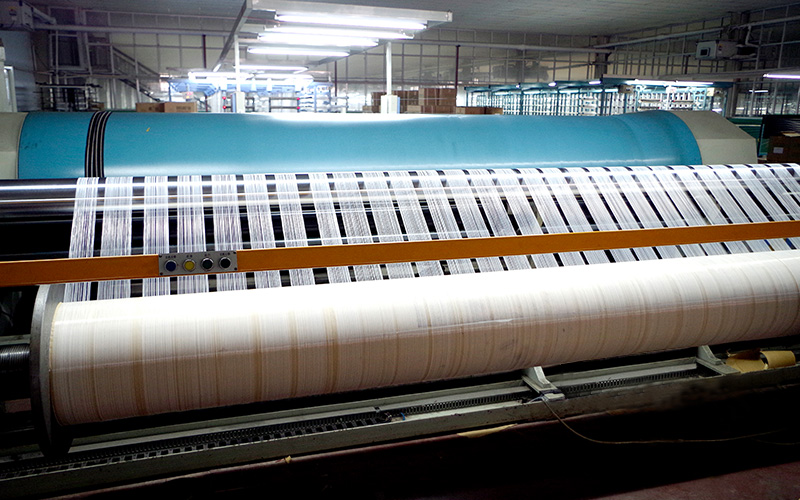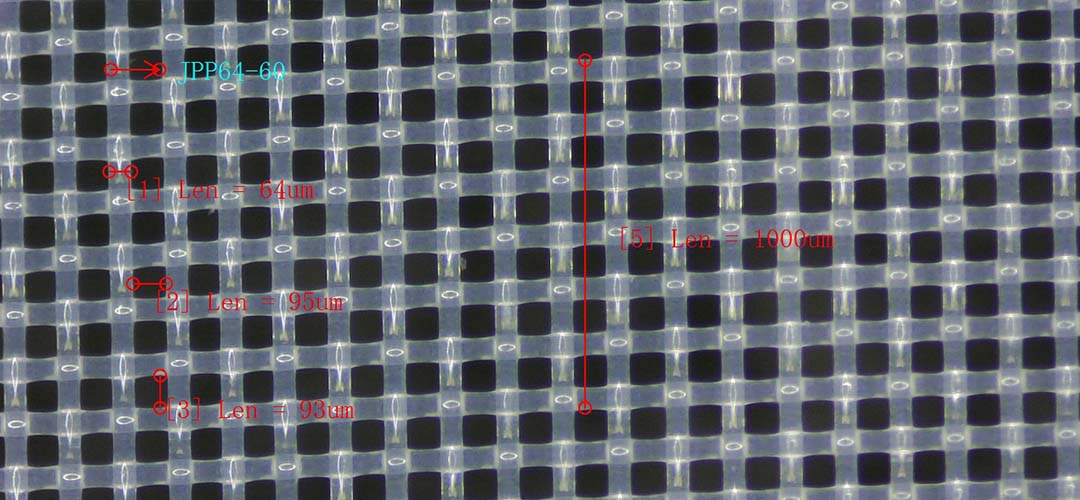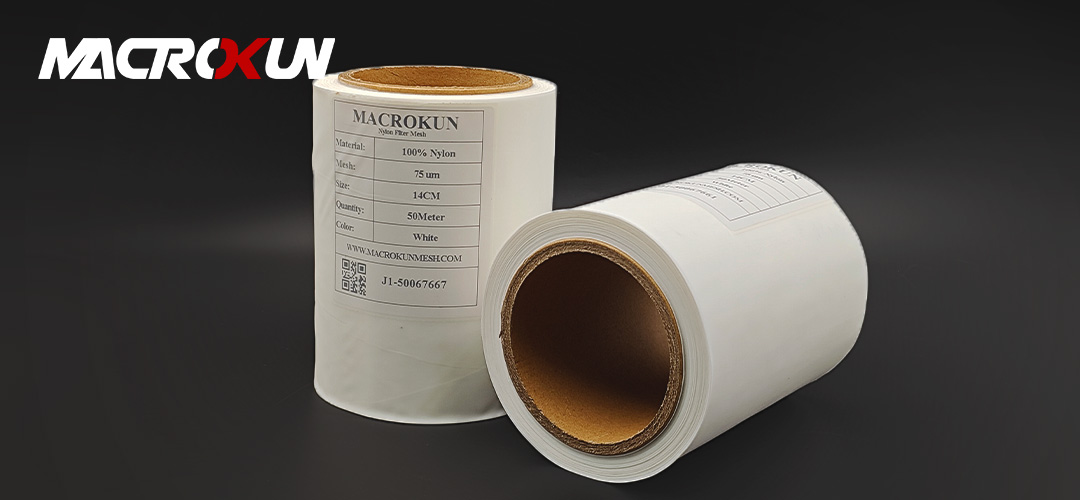When it comes to large-scale filtration applications, choosing the right type of mesh is crucial to ensure optimal performance and efficiency. One popular option that has gained widespread recognition for its effectiveness is the 500 micron nylon mesh. This versatile material offers a range of advantages that make it an ideal choice for a variety of filtration needs.
One of the key advantages of using 500 micron nylon mesh is its durability and longevity. Nylon is known for its high tensile strength and resistance to abrasion, making it a reliable option for applications that require frequent use and exposure to harsh conditions. This means that the mesh can withstand the rigors of continuous filtration without compromising its effectiveness, resulting in a longer lifespan and reduced maintenance costs.
In addition to its durability, 500 micron nylon mesh also offers excellent chemical resistance. This makes it suitable for filtering a wide range of substances, including acids, bases, and solvents, without the risk of degradation or contamination. This versatility allows for greater flexibility in filtration applications, as the mesh can be used in various industries and environments with confidence.
Another advantage of using 500 micron nylon mesh is its uniform porosity and particle retention. The mesh is designed to provide consistent filtration performance, ensuring that particles of a specific size are effectively captured and separated from the fluid or gas being filtered. This level of precision is essential for achieving the desired level of purity and quality in the final product, whether it be in food and beverage processing, pharmaceutical manufacturing, or wastewater treatment.
Furthermore, 500 micron nylon mesh is easy to clean and maintain, thanks to its smooth surface and non-absorbent properties. This makes it simple to remove trapped particles and debris from the mesh, allowing for quick and efficient cleaning between filtration cycles. As a result, downtime is minimized, and productivity is maximized, leading to cost savings and improved overall efficiency.
Additionally, 500 micron nylon mesh is lightweight and flexible, making it easy to handle and install in a variety of filtration systems. Its versatility allows for customization to meet specific requirements, such as size, shape, and configuration, ensuring a perfect fit for any application. This adaptability makes the mesh a practical choice for both new installations and retrofitting existing systems.
In conclusion, the advantages of using 500 micron nylon mesh for large-scale filtration applications are clear. Its durability, chemical resistance, uniform porosity, ease of maintenance, and flexibility make it a reliable and cost-effective option for a wide range of industries and environments. By choosing this high-quality material, businesses can achieve superior filtration performance, increased productivity, and enhanced product quality.
When it comes to large-scale filtration applications in various industries, having the right type of mesh is crucial for achieving optimal results. One popular choice for industrial filtration is the 500 micron nylon mesh, known for its durability, flexibility, and efficiency in capturing particles of various sizes. In this article, we will explore the applications of 500 micron nylon mesh in industrial filtration and how it can benefit different sectors.

One of the key advantages of using 500 micron nylon mesh in industrial filtration is its ability to effectively capture particles that are larger in size. This makes it ideal for applications where coarse filtration is required, such as in the mining and construction industries. The mesh is strong enough to withstand the harsh conditions of these environments while still providing reliable filtration performance.
In the food and beverage industry, 500 micron nylon mesh is commonly used for filtering liquids and separating solids from liquids. Its fine mesh size allows for efficient removal of impurities and contaminants, ensuring that the final product meets the highest quality standards. Whether it’s filtering juice, beer, or dairy products, this type of mesh is essential for maintaining product purity and consistency.
Another important application of 500 micron nylon mesh is in wastewater treatment plants. The mesh is used to remove solid particles and debris from wastewater, helping to improve water quality and protect the environment. By effectively filtering out contaminants, the mesh plays a crucial role in the treatment process, ensuring that the water meets regulatory standards before being discharged back into the environment.
In the pharmaceutical industry, 500 micron nylon mesh is used for filtering chemicals, powders, and other substances during the manufacturing process. The mesh helps to remove impurities and ensure that the final product is of the highest quality. With its high strength and chemical resistance, nylon mesh is an ideal choice for pharmaceutical applications where purity and consistency are paramount.
In the automotive industry, 500 micron nylon mesh is used for filtering oil, fuel, and other fluids in vehicles. The mesh helps to remove contaminants and debris that can cause engine damage and reduce performance. By using nylon mesh in automotive filtration systems, manufacturers can ensure that their vehicles run smoothly and efficiently, leading to improved reliability and longevity.
Overall, the applications of 500 micron nylon mesh in industrial filtration are vast and varied. From mining and construction to food and beverage, wastewater treatment, pharmaceuticals, and automotive, this type of mesh plays a crucial role in ensuring the quality and efficiency of filtration processes. Its durability, flexibility, and efficiency make it a popular choice for large-scale filtration applications across different industries.

In conclusion, 500 micron nylon mesh is a versatile and reliable option for industrial filtration applications. Its ability to capture particles of various sizes, its durability in harsh environments, and its efficiency in removing impurities make it an essential component in many industries. Whether it’s filtering liquids, separating solids, or removing contaminants, nylon mesh is a valuable tool for achieving optimal filtration results.
When it comes to large-scale filtration applications, choosing the right mesh material is crucial to ensure optimal performance and efficiency. One popular option for such applications is 500 micron nylon mesh, known for its durability, flexibility, and excellent filtration capabilities. In this article, we will discuss how to choose the right 500 micron nylon mesh for your specific filtration needs.
First and foremost, it is important to consider the type of particles or contaminants that need to be filtered out. Different mesh materials have varying pore sizes, which determine the size of particles that can be effectively captured. In the case of 500 micron nylon mesh, it is ideal for filtering out larger particles such as sediment, debris, and other solid contaminants. If your application requires filtering out smaller particles, you may need to consider a mesh material with a smaller pore size.
Another important factor to consider when choosing 500 micron nylon mesh is the flow rate of the filtration system. The flow rate is the rate at which fluid passes through the mesh material, and it is crucial to ensure that the mesh can handle the required flow without clogging or causing pressure drop. Nylon mesh is known for its high flow rate capabilities, making it an excellent choice for applications that require efficient filtration without compromising on flow.

In addition to pore size and flow rate, it is also important to consider the physical properties of the nylon mesh, such as tensile strength, abrasion resistance, and chemical compatibility. Nylon mesh is known for its high tensile strength, which makes it durable and long-lasting, even in high-pressure filtration systems. It is also resistant to abrasion, ensuring that it can withstand the rigors of large-scale filtration applications without deteriorating over time. Furthermore, nylon mesh is chemically compatible with a wide range of substances, making it suitable for use in various industries and applications.
When choosing 500 micron nylon mesh for large-scale filtration applications, it is essential to consider the overall quality and construction of the mesh material. Look for mesh that is manufactured using high-quality nylon fibers and a precise weaving process to ensure uniform pore size distribution and optimal filtration performance. Additionally, consider the mesh‘s overall thickness and weight, as thicker mesh materials tend to be more durable and resistant to wear and tear.
Lastly, consider the supplier or manufacturer of the 500 micron nylon mesh. Choose a reputable supplier with a proven track record of providing high-quality mesh materials for large-scale filtration applications. Look for suppliers that offer customization options, such as different mesh sizes, colors, and coatings, to meet your specific filtration requirements.
In conclusion, choosing the right 500 micron nylon mesh for large-scale filtration applications requires careful consideration of factors such as pore size, flow rate, physical properties, quality, and supplier. By taking these factors into account and working with a trusted supplier, you can ensure that your filtration system operates efficiently and effectively, providing clean and purified fluids for your specific application.
When it comes to large-scale filtration applications, using the right type of mesh is crucial for achieving optimal results. One popular choice for many industries is 500 micron nylon mesh, known for its durability and efficiency in capturing particles of various sizes. However, to ensure the longevity of this mesh in filtration systems, proper maintenance is essential.
One of the key maintenance tips for 500 micron nylon mesh is regular cleaning. Over time, particles and debris can accumulate on the surface of the mesh, reducing its effectiveness in filtering out contaminants. To prevent clogging and maintain the mesh‘s efficiency, it is important to clean it regularly. This can be done by rinsing the mesh with water or using a mild detergent to remove any buildup. Additionally, using a soft brush or cloth to gently scrub the mesh can help dislodge stubborn particles.
Another important maintenance tip is to inspect the mesh regularly for any signs of wear or damage. Nylon mesh can be prone to tears or holes, especially in high-pressure filtration systems. By inspecting the mesh on a regular basis, any potential issues can be identified early on and addressed before they escalate. If any damage is found, it is important to repair or replace the mesh promptly to prevent further damage to the filtration system.
In addition to cleaning and inspecting the mesh, it is also important to ensure that the filtration system is operating at the correct pressure and flow rate. Excessive pressure can put strain on the mesh, leading to premature wear and tear. Similarly, a low flow rate can result in inefficient filtration, causing particles to bypass the mesh and contaminate the filtered product. By monitoring and adjusting the pressure and flow rate as needed, the longevity of the 500 micron nylon mesh can be maximized.
Furthermore, proper storage of the mesh when not in use is essential for maintaining its longevity. Nylon mesh should be stored in a clean, dry environment away from direct sunlight and extreme temperatures. Storing the mesh properly can prevent it from becoming brittle or discolored, which can affect its performance in filtration systems. Additionally, storing the mesh in a protective case or container can prevent damage from accidental bumps or knocks.
Lastly, it is important to follow the manufacturer’s guidelines for the care and maintenance of the 500 micron nylon mesh. Each mesh product may have specific recommendations for cleaning, storage, and usage, and following these guidelines can help ensure the longevity of the mesh in filtration systems. Additionally, manufacturers may offer maintenance kits or replacement parts to help keep the mesh in optimal condition.
In conclusion, proper maintenance is essential for ensuring the longevity of 500 micron nylon mesh in large-scale filtration applications. By regularly cleaning, inspecting, and monitoring the mesh, as well as storing it properly and following manufacturer guidelines, the efficiency and lifespan of the mesh can be maximized. With these maintenance tips in mind, industries can continue to rely on 500 micron nylon mesh for effective filtration of particles in their processes.
Pre: Nylon Mesh Air Filters: Cleaner Air for Your Home and Industry
Next: Black Nylon Mesh Netting: Aesthetic and Functional Options for Home Use

MACROKUN has established long-term and stable cooperative relations with many transportation companies such as China Post, DHL, FEDEX, USPS, UPS, etc. Of course, MACROKUN can also provide air and sea transportation. The powerful logistics system enables all MACROKUN'S Printing Mesh, Filter Mesh and Filter Bags and so on to be easily and efficiently transported to any place. For quotes and inquiries, please email our sales team.





